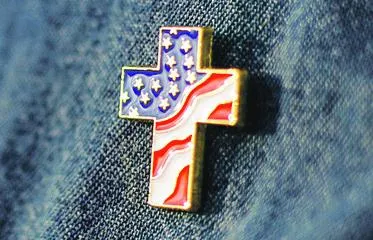
letter from America
Thinking through ‘Christian nationalism’

Josh Moody
It’s hard for me to tell from my current location in Chicagoland, but I suspect that the ideas floating around, dubbed at times ‘Christian nationalism’, have also made their way to the fayre isles of my homeland, the United Kingdom. Certainly, at any rate, they have caused some waves in America. How do we think through the issue of ‘Christian nationalism’?
Part of the problem is the slipperiness of the term. After all, raised as I was in England, the idea of a ‘Christian nation’ hardly seems strange –though, even by then, we were acutely aware that England was in no real sense ‘Christian’ anymore, if it ever had been. But the Church of England was, and is still, the established church. It has legal standing; there are bishops who sit in the upper house of the Houses of Parliament. The laws upon which the countries of the United Kingdom base their legal existence are deeply rooted in Christian ideas. None of this can be denied by anyone who has given much thought to the matter. Why then the controversy over ‘Christian nationalism’?

letter from America
Christmas is more than an evangelistic opportunity

Josh Moody
The origins of Christmas celebrations as we tend to experience them are fraught with controversy – and ignorance, too.
It may be that the purported pagan roots of Christmas trees are arguable, but the actual celebration of Christmas goes back much further than Albert’s love for the German Christmas tree. Some say that December 25th was chosen by the early church because it is roughly nine months after the virginal conception. That may well be, but it’s also the case that the date falls on a time when ancient Roman imperial customs celebrated in pagan ways.

letter from America
How weather affects the US psyche – and the UK’s too

Josh Moody
At time of writing, Hurricanes Helene and Milton have had significant impact on parts of America.
The regularity of natural events like this (the ubiquitous insurance moniker ‘Acts of God’) is surprising for those who grew up in the more placid weather patterns of the UK. Yes, hurricanes can hit there too – I remember the one that (as the joke was) turned leafy Sevenoaks into ‘One oak’. I actually slept through that hurricane, awakening to the sound of other teenagers rushing around with hilarity at the mild effects of broken glass and the like where our dormitories were.